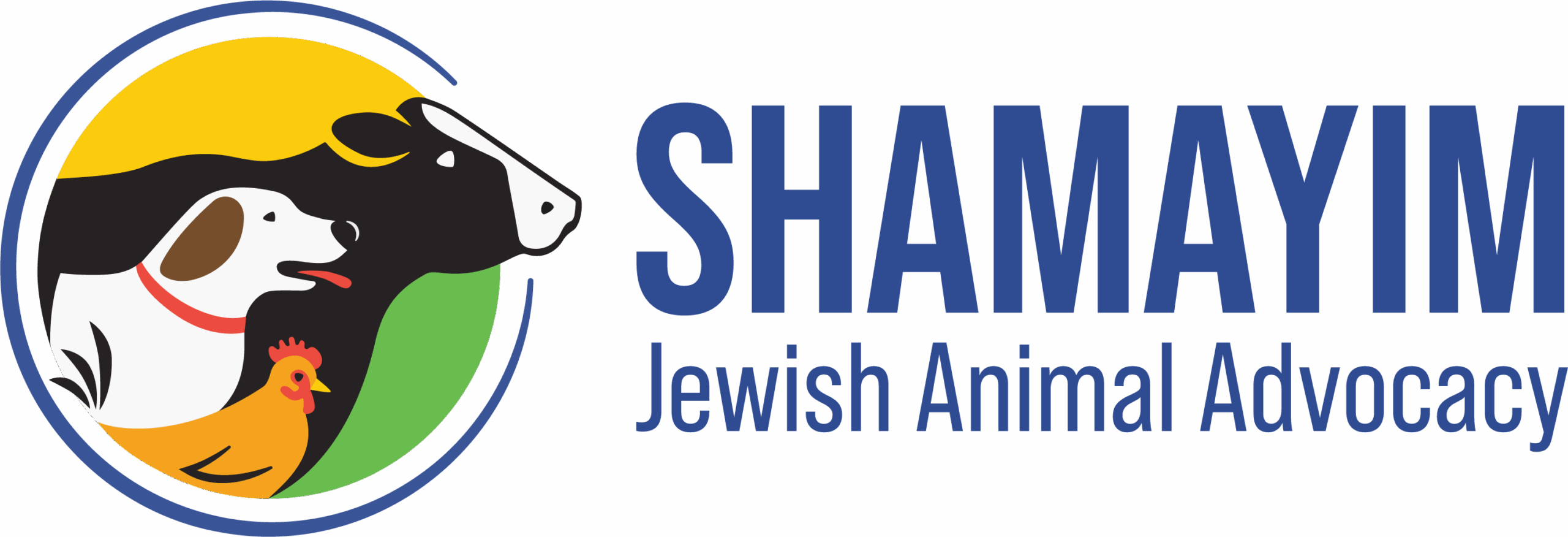There are few conversations more fraught with emotional landmines than those around food. And when that food involves the lives of animals, beings with beating hearts, with families, with fear and joy, the stakes rise even higher. Many of us have experienced the tension: you share that you’ve stopped eating meat, or mention the harms of factory farming, and suddenly what felt like a simple moment of truth-telling becomes a battlefield. Eyes narrow. Jokes fly. Defensiveness creeps in.
But here’s the truth: when around 100 billion land animals are suffering each year in industrial systems that also devastate the environment and harm human communities, and when over a trillion fish are taken from our oceans, we cannot afford silence. At the same time, if we truly want to make change, we must speak not only with courage but with compassion.
So how can we talk to those we love, our parents, our friends, our colleagues, about eating less meat in a way that doesn’t alienate them, but instead opens their hearts?
This is not just a question of strategy. It is a question of values; Of how we speak from a place of compassion and integrity, even when we feel grief and urgency. And it is a question of how we move this world, incrementally and humbly, toward redemption.
This is a guide for how to have these difficult conversations. Not to “win” debates, but to open hearts.
Why Talk About It at All?
Let us begin with the moral imperative. We are taught in Judaism that silence in the face of suffering, known as shtika k’hoda’a, is not neutrality – it is complicity. The Torah does not permit us to look away.
When billions of animals are raised in confinement, denied every natural instinct, mutilated without pain relief, and slaughtered for food we do not need, this is not a neutral act. When the land is poisoned, the air polluted, and the climate destabilized by methane from industrial animal agriculture, this is not someone else’s problem. When slaughterhouse workers suffer injury, trauma, and exploitation, this is not a distant injustice.
And so, we speak; Not to shame, not to scold, but because we believe in the redemptive power of truth shared in love.
What’s the Goal of the Conversation?
In our ideal imaginings, we might hope that one powerful conversation in which we share the reality of factory farms; of mutilations, confinement, and the desecration of G-d’s creation, will transform someone entirely; that they’ll put down their fork and pick up the cause. But rarely is change so sudden. Even Moses required many signs, and many hesitations, before finally embracing the path laid out before him.
The goal of speaking about veganism or reducing meat isn’t immediate conversion. It’s opening a crack in the door and planting seeds. A moment of reflection. A spark of curiosity.
That spark might not catch fire right away. But it might return later, in the grocery aisle, or at a Shabbat table, or when watching their child bond with a dog, and wondering why a calf deserves less affection.
Judaism doesn’t expect moral perfection overnight. We are taught that change is a journey. Think of Jacob wrestling with the angel; he didn’t emerge unscathed, but he emerged transformed, renamed Yisrael, the one who struggles with God. So too, we can invite others into that sacred struggle. Maybe not to leap immediately into veganism, but to begin questioning, learning, and caring.
Our conversations are not a destination. They are part of a journey.
“Us With Them,” Not “Us Versus Them”
The Talmud is filled with heated arguments, but also mutual respect. In the house of Hillel and Shammai, disagreement was not a reason to sever relationships. It was a sign of a tradition alive with questioning and growth.
When we talk about eating animals, the stakes are high. If approach these talks with a defensive posture, when we imagine ourselves in battle, we inevitably summon resistance. However, if we speak from a place of vulnerability, of our own learning, our own change, our own heartbreak, we model what we hope to see.
The Talmud teaches us that the debates between Beit Hillel and Beit Shammai endured because they respected one another’s views and even cited their opponents before making their own arguments. This tradition of respectful disagreement teaches us that truth often emerges not from winning, but from listening.
Why does your brother roll his eyes? Is it embarrassment? Is it guilt? Is it fear of being judged? Ask questions. Listen deeply. Treat the person across from you not as a combatant, but as a partner in sacred exploration. If we listen closely, we can speak not only to someone’s actions, but rather to their heart.

Meet People Where They Are
We often assume people don’t care. But more often, they don’t know. Or they know, but they don’t yet have the moral tools to integrate that knowledge. Their cognitive dissonance is not hypocrisy, it is an invitation. And we must meet them where they are.
The Midrash teaches us to : “Speak to each person according to their understanding.” Some are moved by ethics, others by health. Some want to protect the planet, others just want to feed their kids affordably. If we want to open people’s minds, we must speak their language.
- For spiritual Jews: Share Torah values. Tza’ar baalei chayim teaches us to prevent animal suffering. Bal tashchit commands us not to waste. Tikkun olam urges us to repair the world. Can we do that while supporting an industry that profits from pain and destruction?
- For animal lovers: Remind them that pigs, cows, and chickens feel pain and joy just like dogs and cats. Mother cows cry when separated from their babies. Suffering is suffering, no matter the species.
- For environmentalists: Animal agriculture is the leading driver of deforestation, water pollution, and climate change. Eating plants uses fewer resources and heals our planet.
- For health-conscious folks: A whole-food, plant-based diet can lower the risk of heart disease, diabetes, and cancer. The science is clear, and so is the opportunity for healing.
- For the curious or uninitiated: Be their guide; Share articles, recommend documentaries, and invite them to a delicious vegan Shabbat meal. Show, don’t preach.
The prophet Isaiah teaches us that God wants us to learn and help each other, rather than being combative, as Isaiah writes: “Come, let us reach an understanding, says God” (Isaiah 1:18). Your aunt might not change overnight. But if she sees that you are not trying to defeat her, but rather inviting her to reach an understanding, she may begin to listen differently.
Common Traps to Avoid
Yes, people will get defensive. Yes, people will joke or deflect. And in these cases, we can fall into traps that hinder a productive conversation:
- Overloading with statistics: Numbers like “100 billion” are hard to grasp. Share one powerful story. One relatable image. Let it resonate.
- Using graphic images too soon: People should see the truth, but trauma can trigger a shutdown, not an awakening. Lead with empathy and create safety first.
- Sounding morally superior: Our sages taught: “Who is wise? The one who learns from everyone.” Be curious, not condescending. Invite, don’t alienate.
- Assuming people don’t care: Most people care deeply, they just don’t know the realities of factory farming. The meat and dairy industries have poured billions into hiding the truth. When people learn, they change.
It’s easier to laugh at veganism than to confront the reality of a piglet screaming while being gassed to death. Easier to scoff than to face the haunting images from inside a slaughterhouse. As Isaiah warned: “They keep on hearing, but do not understand; they keep on seeing, but do not perceive.” Let us be the ones who help them understand and perceive.
When the conversation gets hard, when you feel disrespected, or dismissed, just breathe. Remember that even Moses was mocked and doubted by the Israelites in the desert, and remember that every great movement toward justice was born not in anger, but in persistent, unwavering love.
Keep the Door Open
Transformation rarely happens in one conversation. What matters most is the relationship. Even if the person isn’t convinced, even if the talk ends with awkward silence or a shrug, leave the door open. Thank them for listening. Offer to share a recipe, a book, or a film. Invite them to a plant-based Shabbat dinner. Let them taste the joy, not just the ethics.
And if they ask nothing more, trust that your words matter; That you honored your values, and were a voice for those who cannot speak.
And always remember: You are not alone. Every act of truth, every word of kindness, is part of a great tapestry of redemption.
We are part of a growing movement of people choosing justice over comfort, compassion over convenience, hope over despair.
Bring Them Into the Tent
The Torah commands us, again and again, to care for the stranger, the oppressed, and the voiceless. That must include animals; beings created by the same Divine hand, and entrusted into our care.
To talk about this is to fulfill a mitzvah. To do so with gentleness, patience, and love is to walk in the ways of God. Our ancestor Abraham wasn’t known for shouting people down. He was known for hospitality, for opening his tent on all sides. We must do the same. Invite people in, and feed them good food. Model joy, not anger. Let your life be your loudest sermon.
Let us speak with courage and humility. Let us plant seeds. And let us never forget the infinite power of a gentle, persistent, heart-centered voice.


Leave a Reply